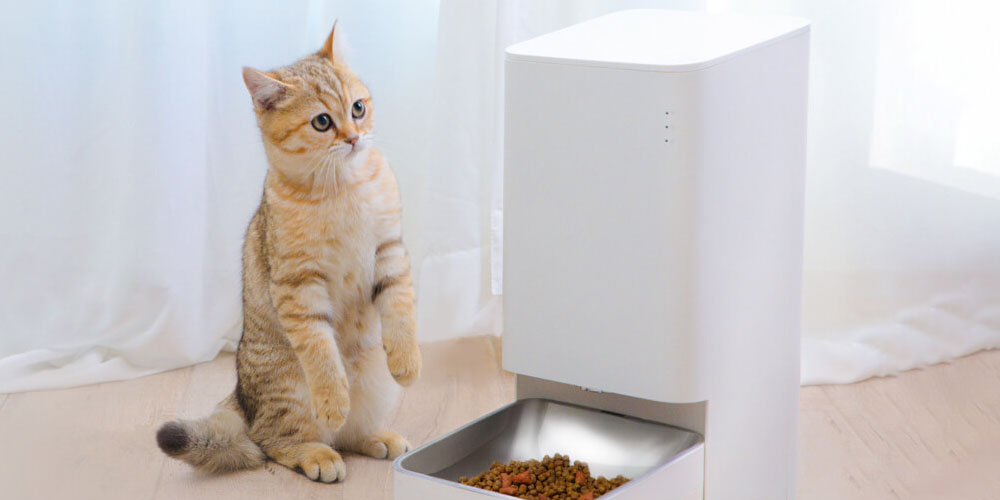It can be hard to tell when your cat is ill, particularly from germs accumulating in its pet feeder. The felines tend to conceal signs of sickness until they can no longer bear it. Some cats hide from people when they are sick. Others exhibit unwellness through vomiting, fur-shredding, or poor feeding habits. It is crucial to watch out for these signs and contact your vet if need be. Scheduling regular vet visits is one way to prevent illness in cats.
Signs that your cat is sick from germs
1. Vomiting
Does your cat vomit soon after eating? Regurgitating shortly after food consumption may be an indication of food poisoning or general unwellness. If your kitty vomits after two meals consecutively, it’s time to seek medical attention.
2. Loss of appetite
Your kitty skipping a meal once a week may be familiar, but skipping two or more meals in a row isn’t good. Thus, continuous meal-evasion should be a reason to visit the vet.
3. Diarrhea
Diarrhea is not always an everyday occurrence for any mammal. Similarly, diarrhea in pets is a red flag. It could signal intestinal parasites or dietary indiscretion and dehydrate the feline if left untreated.
4. Hair loss
If your cat is shedding more hair than usual, he is probably very sick. Abnormal hair loss in cats may be a sign of skin allergy or hyperthyroidism. Don’t brush the cat’s coat too much during this period of extreme hair loss. Visit the vet immediately to find out the underlying problem.
5. Eye or ear problems
Note, healthy pets have clear, bright eyes. Tear strained eyes can be evidence of allergies, tear duct blockage, foreign object entry, or viral conjunctivitis. Secondly, ear discharge, swollen ears, or excessive ear scratching are some manifestations of ear problems. Ear infections or ear mites can cause ear discharge. Thus, a cat owner should not ignore either of these signs.
6. Lethargy
Is your pet unusually inactive or sleeping more than usual? This may be a gesture that everything isn’t up to par. Seek a vet’s help when you consistently notice lethargy in your cat.
7. Bad breath
Most pet owners tend to ignore their pet’s dental hygiene. Bad breath may be an indication of your feline friend needing a proper tooth-brushing or the presence of an oral infection. It is recommended that cat owners take the pets for a dental examination at least once a year.
8. Coughing
When your cat coughs, it means they have an issue in their lungs or irritation in their airways or throat. Coughing in cats may result from allergies, heartworms, fungal lung infections, or tight collars. A vet examination should help you identify the exact cause and right treatment. Lastly, pneumonia in cats also manifests in coughs.
9. Mobility problems
Limping or stiffness are signs of external or internal injury. In senior cats/dogs (10 years and older), limping could indicate conditions like arthritis.
10. Lumps and bumps
A small lump or bump on the skin of your kitty may be indicative of minor trauma. Abscesses can cause high temperatures or general sickness in cats. If the cat doesn’t improve soon enough, call the vet.
Final Thoughts
Cat/dog owners should look out for the above signs and symptoms. Quick actions and a call to the vet could help the quick recovery of the feline. Thus, it’s only by remaining vigilant you will keep your dogs heath in check always.

